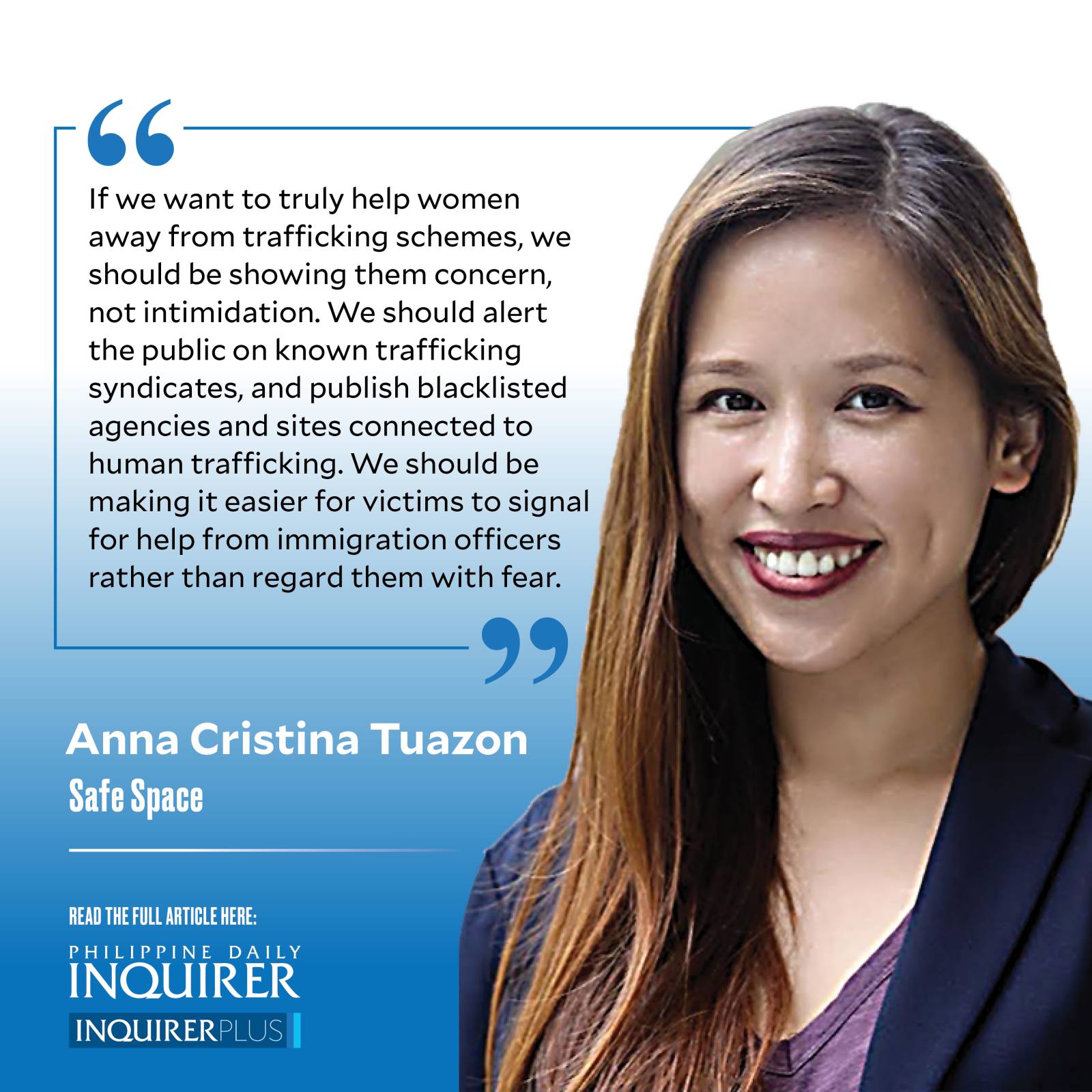Targeted while traveling

It seems that traveling through the Ninoy Aquino International Airport has become a series of herculean tasks, with one stressful obstacle after another. Not only are lines long and slow, but reports run rampant of luggage being lost for hours, only for them to be returned emptied of precious pasalubong. With Filipino resilience, we have become increasingly accepting of the fact that we must arrive at the airport six hours early and to wrap our suitcases over and over again with plastic in the futile hope that, this time, our travel would be smooth and safe.
As if these hardships weren’t enough, the Bureau of Immigration (BI) has decided to make travel even more hellish. A woman accused the BI of holding her to an unnecessarily long secondary inspection, which caused her to be offloaded from her flight to Israel. One of the documents they required of her was her yearbook, of all things. Many other folk have since come out with their immigration horror stories, such as being forced to show old passports and records of intimate conversations with their partner just to prove their relationship.
The BI’s statement of apology to the offloaded woman was barely comforting: There was no commitment to change their system or to provide financial compensation for the missed flight. The agency thought that simply reassigning the offending officer somehow solves the problem. Further, the BI released an official list of documents that may be required, which included the ominously vague “and other supporting documents.” Anyone who has applied for a visa knows that this could mean practically anything under the sun. This is the dreaded catch-all phrase that is prone to abuse and exploitation—a loophole that could justify hasty profiling, or a tool used to extract bribes from travelers. Our government, in particular, does not do well with vague and ambiguous directives. The vaguer the instruction, the more likely it would be exploited by opportunistic personalities.
The BI seems to think that any inconvenience caused by their directives is justifiable since the agency is supposedly focused on preventing human trafficking. Surely, there must be a way to combat this crime without causing hours of delay. There must be a way to “save” potential victims without profiling and harassing them. If these lengthy interviews are done in the spirit of preventing people from being abused and exploited abroad, shouldn’t we also prevent them from getting abused and exploited at the airport? More than just the inconvenience caused to airline passengers, it is concerning that this is how we fight human trafficking. We put potential victims on the hot seat, forcing them to prove they are not likely to become victims.
I remember being questioned by Philippine immigration officials some time ago, since I was traveling with a non-Filipino boyfriend. The interview didn’t take as long as that of the person detained in secondary inspection, but I still got the sense that my boyfriend was suspected to be my trafficker. I tolerated their questions and answered as best as I could. Once we reconvened, I asked my boyfriend if he was questioned as well. Not at all, he said, despite my pointing him out to the officer interviewing me. If they feared him to be my trafficker, shouldn’t they have scrutinized his credentials more than mine?
Investigations into human trafficking should be focused on the syndicates and perpetrators. What other crime investigation ends up detaining the victims rather than the possible criminals? If we want to truly help women away from trafficking schemes, we should be showing them concern, not intimidation. We should alert the public on known trafficking syndicates, and publish blacklisted agencies and sites connected to human trafficking. We should be making it easier for victims to signal for help from immigration officers rather than regard them with fear. If a prolonged interview is necessary, this should be explained well and with care to the passenger. If people know exactly what the delay is for and why it is necessary, they are much more likely to extend courtesy and show patience.
The consequences of missing one’s flight should not be taken lightly; officers should be aware of the maximum time they can hold someone without cause. We should provide potential targets of trafficking tools to make empowered decisions. The first tool is knowledge. We must provide psychoeducation on how traffickers recruit victims by either pretending to be their boyfriends, or offering lucrative jobs abroad. We must teach people how to discern these offers and how to conduct relationships and transactions in a self-protective manner. What is ultimately important is for people to feel that they do have legitimate choices. Most people get ensnared in these schemes due to lack of alternative opportunities. If life were less desperate here, it wouldn’t be as tempting to seek one’s fortunes abroad.
——————-















